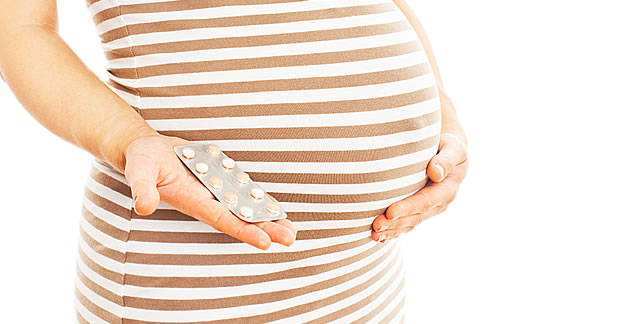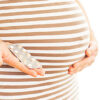Pregnant women are understandably concerned about the threat of the Zika virus. But everyday pregnancy medicines and behaviors can also threaten a developing fetus.
With the threat of Zika — the mosquito-borne virus that causes grave birth defects — literally hanging in the air, pregnancy is understandably concerned.
So much is out of an expectant mother’s control — and Zika is only the latest threat. But it’s important to remember that anything you take or consume that can get into your bloodstream may also cross the placenta into your fetus’ bloodstream too. Here are 5 that, fortunately, can be fairly easily avoided:
Aspirin: Yes aspirin! Who would have thought it? According to BabyCenter, a few studies show that taking aspirin in early pregnancy is associated with an increased risk of miscarriage. Some researchers believe that taking aspirin might affect the baby’s growth, and may slightly increase the risk of a placental abruption (when the placenta detaches from the uterine wall). Later in pregnancy, taking full-dose aspirin might delay labor and increase the risk of heart and lung problems in your newborn and bleeding complications for you and your baby. Other pain relievers, thought to be safe, may also pose issues. Wondering about Tylenol? A recent Norwegian study found that the children of women who took this common NSAID during pregnancy were more likely to have asthma, even after correcting for other factors. To deal with headaches and other aches and pains, check with your doctor to figure out what’s right for you.
Herbal Supplements: These are not as safe as you’d like to think. In a study of 700 Italian women who uses herbal and natural remedies during pregnancy (the most common was almond oil, spread on skin to avoid stretch marks). That study identified a link to preterm birth. The other herbs the women said they used were fennel, valerian and echinacea. Women took the herbs for many reasons including stretch marks, anxiety, sleep disturbances, capillary frailty, fluid retention and constipation. It was noted in the study that the researchers did not attempt to study the actual herbs the women used; variation in quality and concentration of herbs is to be expected; because supplements aren’t regulated by the FDA, many are not exactly as labeled.
Check out a list of herbs that are believed or known to be dangerous during pregnancy, from Mother Earth Living.
Antibiotics: If you have to take antibiotics in pregnancy, penicillin seems to be the safest. Definitely avoid tetracycline — it can affect the growth of the baby’s bones during the time when it is taken. It’s also blamed for a baby’s first teeth coming in stained yellow. Streptomycin should not be taken either, since it can cause deafness in the baby. Not much is known about how antibiotics affect an unborn baby. “For a pregnant woman it would probably be smart to eliminate them altogether for the health of both the fetus and the mother,” according to a paper from the Yale-New Haven Teachers Institute.
Alcohol: More than once in my life I’ve noticed a friend or relative switch from her regular chardonnay or vodka tonic to seltzer and within a few weeks the expected announcement was made: she was pregnant. It’s a wise woman who stops drinking as soon as she becomes pregnant and even before, when she starts trying to become pregnant.
“Developing babies have the same blood alcohol concentration as their mother, but they lack the ability to process or metabolize alcohol,” according the National Organization of Fetal Alcohol Syndrome (FAS). There is no safe level of drinking and there is no safe time during pregnancy to drink alcohol. Exposing a fetus to alcohol can affect his/her brain at any point during the pregnancy. Depending on what organs are developing, alcohol can affect each organ differently, and any damage done is irreversible. Don’t drink “socially” and if you have trouble not drinking, ask for help from your doctor. It’s never too late in pregnancy, or too soon, to stop.
Tobacco: It’s not uncommon for a pregnant woman to find the previously seductive smell of tobacco nauseating. Lucky her. Smoking is well known to be bad for the pregnant woman and the fetus and here’s why, from ACOG (American College of Obstetrics and Gynecology): “Nicotine causes blood vessels to constrict, so less oxygen and nutrients reach the fetus. Carbon monoxide decreases the amount of oxygen the baby receives. The risks of preterm birth and problems with the way the placenta attaches to the uterus are increased in women who smoke during pregnancy. Also, infants born to women who smoke during pregnancy tend to be smaller than those born to nonsmokers. They are more likely to have asthma, colic, and childhood obesity. They also have an increased risk of dying from sudden infant death syndrome (SIDS).
“Breathing secondhand smoke — smoke from cigarettes smoked by other people nearby — can increase the risk of having a low birth weight baby by as much as 20%. Infants who are exposed to secondhand smoke have an increased risk of SIDS and are more likely to have respiratory illnesses than those not exposed to secondhand smoke.” source: ACOG
In sum, remember that you really are eating for 2 — the foods and drugs you don’t use can have a direct and positive effect giving your baby the best start possible in life.






